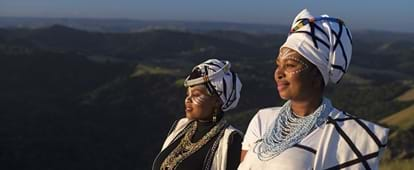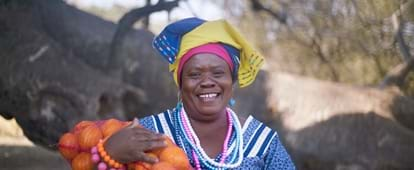By creating an account, I agree to the
Terms of service and Privacy policy
Choose your country and language:
Africa
Americas
Asia Pacific
Europe
RResilience and peaceful resistance are just some of the ways in which South African women have fought against apartheid. Before the idea of a rainbow nation was even conceived, women across races came together in various organisations to further strengthen the fight against apartheid.
The history is vast, and one of the first woman-led protests took place when Charlotte Maxeke led the protest against passes in 1930 where women burnt passes in front of the municipal offices in the then Orange Free State (now Free State Province). The passes were designed to reinforce segregation and dictate where a black person could be at a certain time. Maxeke was also at the forefront of creating the African National Congress Women’s League in 1931.
One of the most pivotal moments in the history of South Africa took place in 1950 when women from all races gathered to protest the Urban Areas Act of 1950. The protest proved that it was possible to unite against apartheid no matter the colour of one’s skin. The sass and bravery of the women fortified the slogan, “You strike a woman - you strike a rock”. The protest took place at the iconic Union Buildings in Arcadia, Pretoria, the site of the office seat of the local government. The Union Buildings are also an official tourism site featuring impressive buildings and a unique panoramic view of the city, affectionately known as the Jacaranda City owing to its wealth of jacaranda trees and purple landscape in spring.

AApartheid’s weaponry extended to weakening black communities by establishing government-sponsored beer halls, and politician and activist Dorothy Nyembe led a series of protests in 1959, lasting four years, mainly in the then Natal province (now KwaZulu-Natal). Her leadership in the movement led to her arrest in 1963. Resistance to the apartheid government in unity resulted in women uniting and forming movements to empower women across the board, particularly the plight of black women. As a result, Gardiner Street in Durban, KwaZulu-Natal was renamed to Dorothy Nyembe Street and in Soweto, you can visit the Dorothy Nyembe Park in an area known as Mofolo North. Here you can admire unusual sculptures and figurines.
After spending time in the USA, activist Fatima Meer returned to form the Black Women’s Federation, which mainly dealt with human rights and dignity in Education, Housing, Labour, Rural Development and Detention facilities. Another important organisation that was formed was the African Self-Help Association, which still exists today and centres on training women who want to become teachers and social workers.
By 1960, these strides set by women resulted in greater economic participation, and almost 32 percent of women became active in the South African economy. By the official end of apartheid in 1994, all women were finally granted the right to vote.

SSouth African women carried the spirit of peaceful resistance, and in 1994 the Truth and Reconciliation Commission (TRC) was established as proposed by Dullah Omar who was the Minister of Justice in the newly formed democracy. A well-noted and documented fact is that not a single woman applied for amnesty. The TRC was followed by the establishment of the Commission for Gender Equality, focused on creating strategies to equalise opportunities and economic participation for women. In 2005, president Thabo Mbeki made history by appointing South Africa’s very first female deputy president of South Africa, Phumzile Mlambo-Ngcuka. Mlambo-Ngcuka continues to make strides in education and in advocating for women’s rights beyond her tenure as deputy president.
Under apartheid, Helen Suzman was the only woman in Parliament, but currently, 33 percent of the Cabinet are women. The structure of the South African government is probably one of the most formidable in Africa and the democratic nature and level of women’s participation are ever increasing.
On the ground, the struggle of women continues and the battles they have are endless - HIV/Aids, unemployment, domestic abuse, lack of service delivery, free education, rape, femicide and so much more. Despite these struggles, women are breaking barriers each day and are innovating ways to conquer oppression.

AAbout the author
Vuyo Seripe is a multi-talented writer who enjoys working with all things digital. She has written content for multiple clients who have commended her for being tenacious and creative. She started writing nine years ago under the mentorship of award-winning writer, Andrew Miller. She has since written for online publications and print publications on various topics about emerging urban cultures, social ills and the development of the digital landscape.
Related articles

